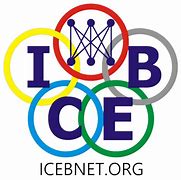Abstract
The paradigm of content creation and intellectual property (IP) is undergoing an unprecedented shift fueled by AI, with ChatGPT at its forefront. This study presents a distinctive approach—a dialogue between a human author and ChatGPT—to explore their collaborative impact on creative content generation, redefining authorship and reimagining the intellectual property landscape.
As AI blurs distinctions between traditional authorship and machine-generated influence, questions emerge about attributing creative ownership, ethical considerations, and the economic valuation of AI's contributions. The human author's collaboration with ChatGPT reveals motivations that extend beyond innovation, encompassing a horizon of narrative experimentation with unique challenges. The subsequent interviews capture the evolving discourse, uncovering that while AI-generated concepts may not inherently spark entirely novel ideas, with careful human guidance, they act as catalysts for enhancing creativity. This dialogue also delves into the complexities of authorship in an AI-infused landscape. It probes the extent to which AI-generated ideas resonate with the author's artistic intent and the challenges of maintaining authorial voice in a dynamic, collaborative environment.
Utilizing qualitative methods, this research seeks to illuminate AI's influence on human authors' creative processes, dissect the intricate interplay between human creativity and AI-generated content, and critically assess the profound implications for established concepts of authorship and the evolving dynamics of the IP economy—an arena witnessing disruption due to the increased prevalence of AI-infused work. The evolving definition of authorship and content ownership catalyzed by AI-generated contributions calls for a fundamental reassessment of the traditional IP models.
Lastly, as AI-generated content becomes integral to creative works, it necessitates the emergence of new models for valuing, distributing royalties, and upholding ethical standards. We delve into the complexities of establishing fairness within this emerging model, which encompasses licensing issues related to the training data used by generative AI companies and these companies' stance on copyright ownership of the generated work. To address these challenges and the limitations inherent in current AI systems, we propose the concept of a Knowledge Graph as a valuable tool to serve as human guidance in AI-generated work. We suggest that the design of these knowledge graphs may play a pivotal role in shaping the future of the intellectual property economy.
In essence, the research presents an unconventional exploration of the partnership between human authors and AI. Through this dialogue, the study not only unveils how they redefine creativity and authorship but also highlights the transformative impact on the IP economy. The outcomes of this research offer valuable recommendations for creators, industries, and policymakers to navigate this evolving landscape.
Recommended Citation
Liu, Ya-Chen; Kuo, Chen-Ho; and Wang, Guo-Hua, "Dialogues of creation: Collaborative content generation by human author and ChatGPT and its impact on the evolving intellectual property landscape" (2023). ICEB 2023 Proceedings (Chiayi, Taiwan). 18.
https://aisel.aisnet.org/iceb2023/18


